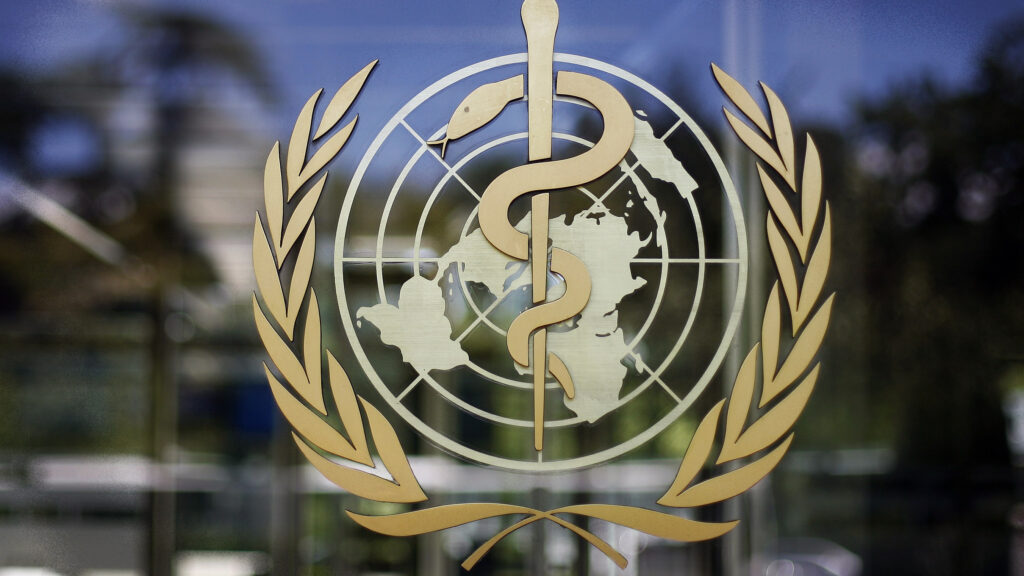The World Health Organization on Wednesday declared the spread of mpox in multiple African countries a public health emergency of international concern, the second such declaration in the past two years called in response to transmission of the virus.
The latest decision came on the recommendation of a panel of experts convened to advise WHO Director-General Tedros Adhanom Ghebreyesus on the issue. It also follows a similar declaration Tuesday by the Africa Centres for Disease Control and Prevention.
“It’s clear that a coordinated international response is essential to stop this outbreak and save lives,” Tedros said in announcing the declaration of the PHEIC.
Mpox is caused by a virus in the same family as smallpox, a virus that was declared eradicated in 1980. The virus, which is believed to be carried by small rodents in some countries in Africa, causes painful scarring rashes when contracted by people. People with mpox can also experience fever, muscle aches, headaches, and respiratory symptoms. The infection is especially dangerous in young children — most mpox deaths occur in young children — and people with compromised immune systems.
A public health emergency of international concern, or PHEIC, can be called in response to a disease event in which risk of cross-border spread is considered high and international cooperation will likely be needed to contain the threat. In this case, cross-border transmission has already occurred multiple times. The declaration of a PHEIC gives the WHO director-general the authority to issue what are known as temporary recommendations — guidance to countries on steps they should take to address the problem.
Some of the cases in Africa — notably in South Africa and in the Ivory Coast — are being caused by the version of the virus that sparked the earlier mpox PHEIC, which ran from late July 2022 through mid-May 2023. That strain of the virus became known as clade IIb. This earlier outbreak, which has involved extensive person-to-person transmission, is believed to have begun in Nigeria perhaps as early as 2015. It was the first time ongoing person-to-person spread of mpox was recorded. That transmission was primarily through sexual contact, which also had not been previously reported as a way the virus could be spread.
That outbreak, which was first detected in the United Kingdom in early May 2022, saw transmission primarily occur among gay, bisexual, and other men who have sex with men. It has not stopped, with nearly 100,000 cases reported by 116 countries since spread was first recognized. But in many places the rate of new infections has slowed considerably from the peak of the outbreak in the summer of 2022.
The trigger for the new PHEIC is a situation that was first observed last September in the Democratic Republic of the Congo, one of the countries where mpox is endemic. The version of the virus that transmits in the DRC is known as clade I. It has been seen to cause more severe disease than clade II and clade IIb viruses.
Mpox transmission in the DRC has traditionally involved small children who become infected when they trap and handle the rodents believed to carry the virus. Infected children may also infect others within their households.
advertisement
Many of the cases that the DRC has reported this year — more than 14,000, with over 500 deaths — involve this type of transmission, largely in the western part of the country.
But sexual transmission of clade I viruses has now also been observed, with a locus of spread detected in the eastern portion of the DRC, near where the country borders Uganda, Rwanda, and Burundi. People seen to have been infected in this outbreak include sex workers and their clients as well as men who have sex with men.
Person-to-person transmission has led to changes in the virus, which has now been dubbed clade Ib.
Transmission has spilled from this part of the DRC into neighboring countries, with Burundi, Kenya, Rwanda, and Uganda reporting roughly 90 cases in the past month. None of these countries has previously reported a case of mpox.
The declaration of a PHEIC elevates the attention the issue should receive in the world’s capitals. It is sometimes thought to help raise money for a particular health problem, although that is not a given. In the previous mpox PHEIC, the WHO put out an appeal for nearly $34 million to help it and affected countries combat the outbreak, but no donors stepped forward.
Anne Rimoin, an mpox expert at the University of California, Los Angeles, just returned from the DRC, where she has studied the virus for years. She suggested getting this situation under control will be a daunting task, both because the conditions that lead to spillovers — when someone contracts the virus from an animal — are poorly understood, and because of the populations in which cases occur.
“We’re just picking up pieces of what’s actually happening because surveillance is not robust,” Rimoin told STAT. “We’re dealing with vulnerable and hard-to-reach populations … whether you’re talking about [infected people in] remote rural areas or men who have sex with men or sex workers.”
Many questions remain about the species of animals that carry mpox and why spillover events are more numerous in some years than in others. In recent years there has been a high number of reported spillovers, which may in part be due to improvements in surveillance, but could also represent true increases driven by as-yet-unknown factors, she said.
“These are the questions that have long been unanswered, because it’s very difficult to be able to do this kind of work. I mean, it’s really needle-in-a-haystack work,” Rimoin said.

